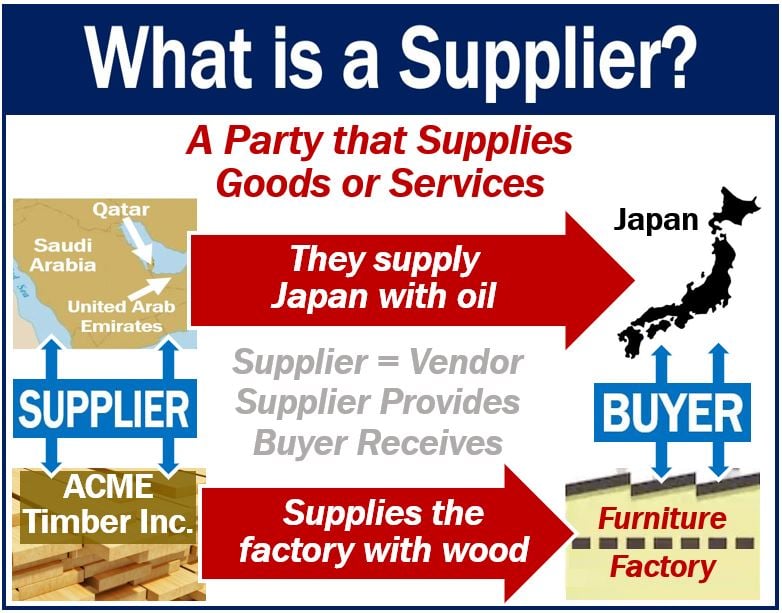A Supplier is a person, organization, or other entity that provides something that another person, organization, or entity needs. During transactions, there are suppliers and buyers. Suppliers provide or supply products or services, while buyers receive them.
We commonly use the term Vendor with the same meaning as ‘supplier.’
In business, for example, every company has at least one supplier. Suppliers supply or provide the company with materials, products, and services.

Trade – suppliers and buyers
The term ‘trade’ refers to the activity of purchasing and selling goods and services. In other words, exchanging them for money.
In any trade, there must be at least two parties. One of them is the supplier or vendor, while the other one is the buyer or purchaser.
Supplier – a country
We tend to think of suppliers as people or companies. However, we also use the term for whole countries.
For example, Japan imports virtually all of its oil and gas.
Japan’s largest oil supplier is Saudi Arabia, followed by the United Arab Emirates, and then Qatar.
Kuwait, Russia, Iraq, Mexico, and Kazakhstan are also Japan’s suppliers.
The United States is one of China’s major soybean suppliers. Since China raised tariffs on American soybeans, its soybean purchases from Brazil and Argentina will increase.
Supplier in supply chain management
Supply chain management or SCM is the management of the flow of products and services. It is a business term.
SCM involves the movement and storage of raw materials, work-in-process inventory, and of finished products from their origin to consumption.
‘Suppliers’ or ‘vendors’ are supply chain management terms. The terms mean entities that provide goods or services to individuals or companies.
Suppliers may, for example, manufacture inventoriable items and subsequently sell them to customers.
The supply chain is the whole process of making and selling commercial products. It includes every stage, from the supply of raw materials to delivering the product to the ultimate consumer.
Supplier – example
Let’s imagine that you are a furniture maker. Some of your suppliers could be a timber company, electricity company, and toolmaker. They supply you with wood, electricity, and tools for making furniture.
Some accounting books, however, only class providers of raw materials as suppliers.
